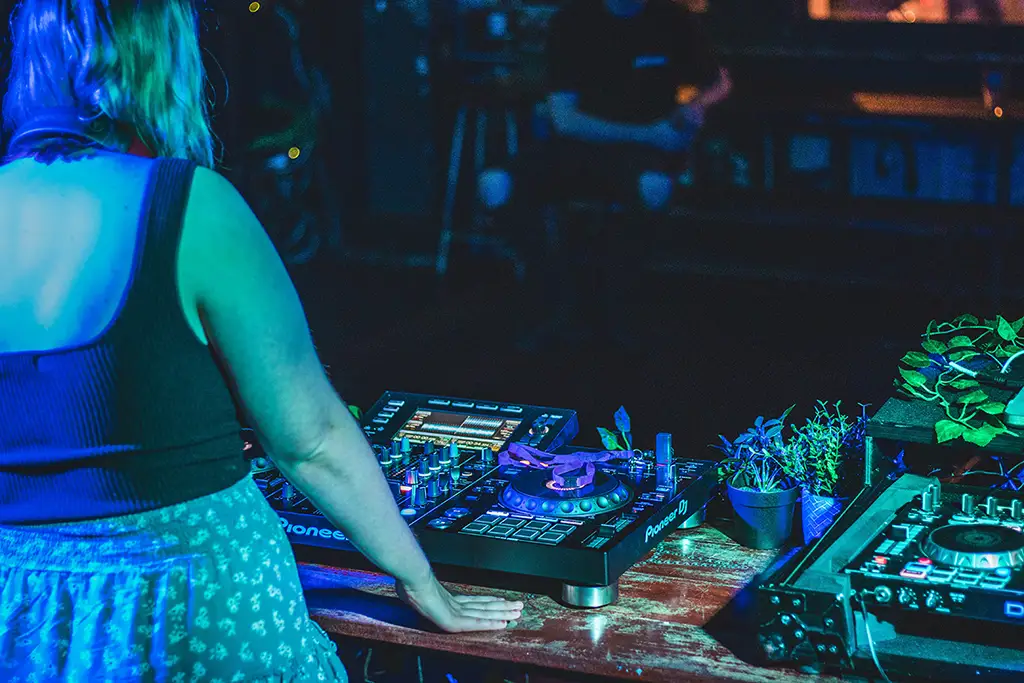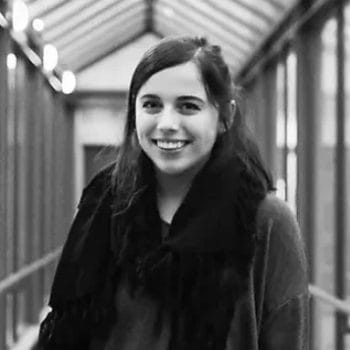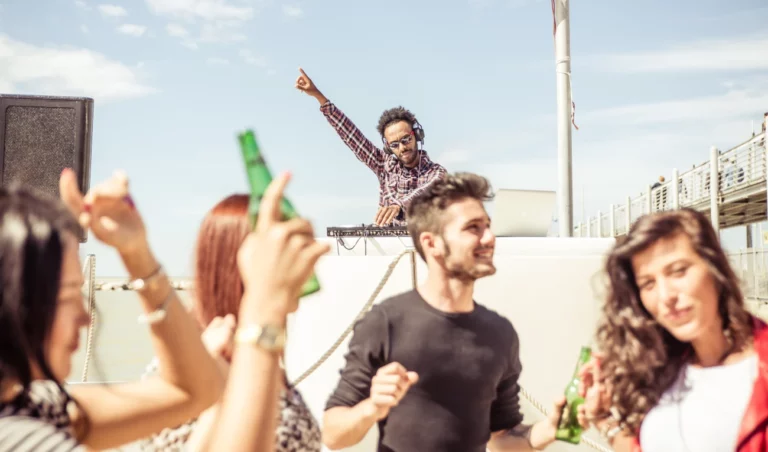As a DJ, your music repertoire is arguably the most important part of your business. You’re a master of tunes, a maestro of good vibes. You can keep any party going with your curated setlist.
But is the music you’re playing at events truly yours to play or sample? If you don’t have a DJ license, then probably not.
So, do DJs need a license to play music in their sets?
Yes! This may not have crossed your mind if you’ve been playing small, unpaid gigs for the most part, or if you’ve just begun to set up your DJ business. However, as you move on to bigger paid opportunities it’s crucial to make sure you are legally allowed to play your music for the public.
If you’re looking for information on DJ licenses, why they’re important, and how to get them, then you’ve come to the right place! We’ll answer all of those questions and more, starting with why you need a license.
Music Copyright Laws
While copyright laws aren’t the most glamorous part of DJing, they are very important for you to understand. After all, using an artist’s copyrighted music without having the correct license is illegal. You could be looking at hundreds of thousands of dollars in legal fees if you were sued for copyright infringement, so it’s important to do things by the book.
You may think that because you’ve purchased a track from Amazon or iTunes, you have permission to play it in your set. However, that isn’t exactly the case. When you purchase a song this way, you really only have permission to play it for yourself—not in a public setting such as that event you just booked.
Violating music copyright law is not something you want to mess around with. While it may be unlikely that you’ll get in trouble for playing an artist’s song at a wedding reception without the proper license, the potential consequences are not worth risking.
The fees for playing music in public that you don’t own the rights to range from $750 at the lowest, all the way up to a whopping $30,000. This doesn’t even include the licensing fee you’ll have to pay once you’ve been caught.
Even worse, if a court finds you guilty of intentionally breaking the law and using this music without a license, you could find yourself facing another $150,000 in penalties on top of the initial fee and licensing cost.
In short, even if you’ve gotten away with it in the past (or had no idea what you were doing was illegal), it’s better to be safe than sorry moving forward.
That’s where public performance licenses come in.
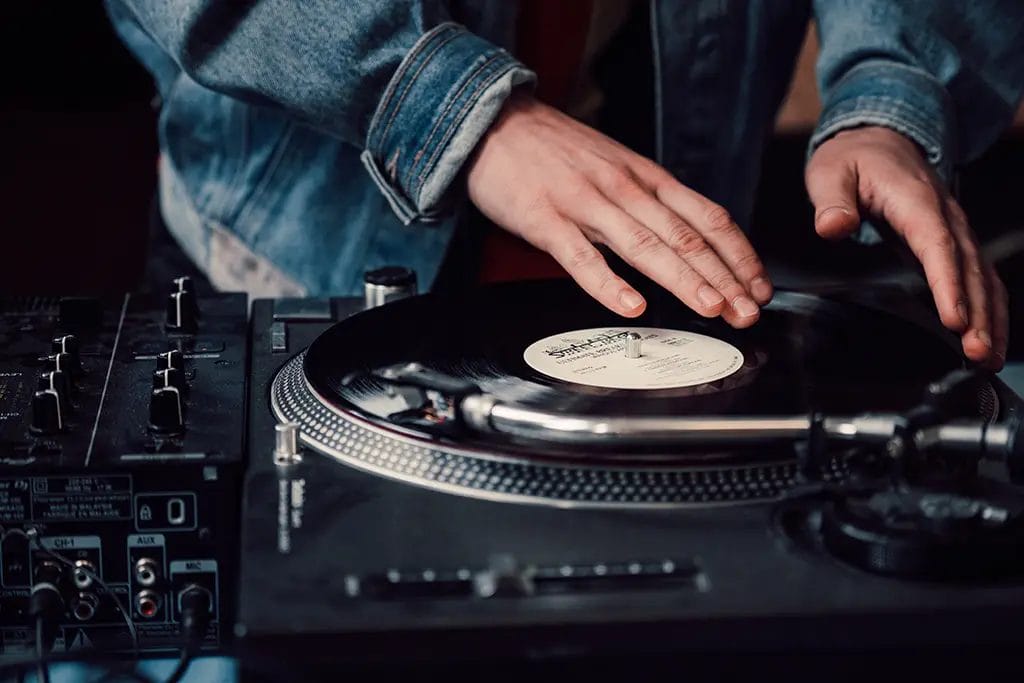
Public Performance License
DJ licenses are also known as public performance licenses, and they grant you permission to play a song in public while ensuring that the artist receives royalties from the song. Even retail stores need to obtain this type of license in order to play a song in their store for customers.
In the US, there are three performance rights organizations:
- American Society of Composers, Authors, and Publishers (ASCAP)
- Broadcast Music, Inc. (BMI)
- Society of European Stage Authors and Composers (SESAC)
Performance rights organizations are responsible for granting public performance licenses to those who apply for them. However, each performance rights organization’s catalog is different, so one song that you want to use in a set might be under one organization while a different one is under another.
Many venues purchase their own public performance licenses from one or more of these organizations so you won’t have to when you play there, but this isn’t always the case. If the venue hasn’t already purchased a license, or if you’re playing a set somewhere that wouldn’t normally need to play licensed music, the responsibility falls on you.
How to Get a DJ License
The best way to go about getting a DJ license is to find out which performance rights organization catalog it falls under. This sounds complicated, but luckily it doesn’t need to be!
On each of the organizations’ websites, you can search their entire catalog for a specific song, artist, publisher, and/or writer. For example, on ASCAP’s site there is a repertory search page that will show you which songs are exclusively controlled by ASCAP as well as those that are shared between ASCAP and BMI.
Once you’ve confirmed which catalog the song you want to use falls under, you can apply directly to the organization’s site for a license to play it.
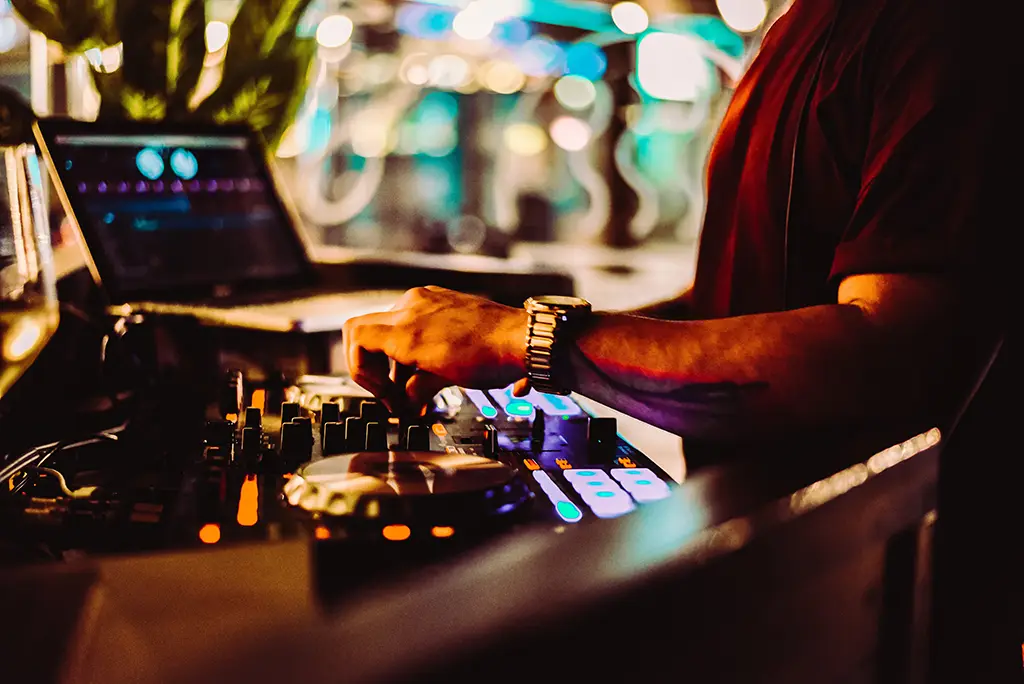
Cost of Obtaining a DJ License
The cost of public performance licenses varies quite a bit depending on what you intend to use the music for. Someone who wants to license a song for use in a film is going to pay more than you will for the same song if you want the rights to play it at a corporate holiday party.
The cost of a license also depends on other factors, such as how many nights per week you’ll be playing the song, whether or not the people at the event will be charged an admission fee, and even which performance rights organization you need to purchase the license from. On average, you should expect to pay $300–500 for an annual license.
However, as we mentioned earlier, some entertainment venues will already have the proper licenses so you don’t have to purchase them yourself—just be sure to ask before you book a gig there.
Protect Your DJ Business
As you can see, as fun as being a DJ is, your line of work comes with its fair share of risks. Beyond the threat of a copyright lawsuit, you also run the risk of accidentally damaging a venue with your equipment, having your equipment stolen, or even someone tripping over your cords at the venue, injuring themselves, and suing you for medical costs.
These kinds of unexpected incidents and many others can be financially catastrophic for you while also damaging your professional reputation. However, with DJ insurance, you can protect yourself from having to cover these costs out of pocket.
While not all venues will need you to purchase a DJ license, most venues will require proof of insurance before booking you. Insurance Canopy offers annual DJ insurance from $192 per year as well as event DJ insurance starting at $59 for one to three-day coverage.
You can purchase insurance that suits your needs using our painless online process and have coverage in just ten minutes or less!
While you’re making sure you own the rights to all your favorite tracks, purchase DJ insurance and get the peace of mind you need to keep the party going all night long.

